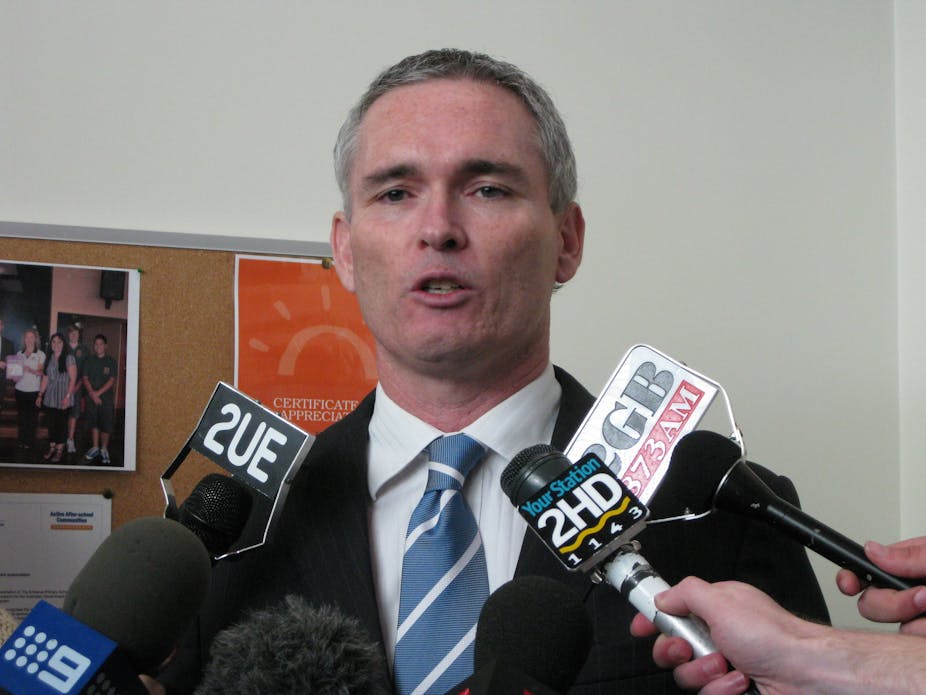The sordid details of Craig Thomson and the Health Services Union affair at one level reflect individual failings on the part of Thomson, HSU East Secretary Michael Williams and National Secretary Kathy Jackson. But at another level, they reflect an institutional failure in the relationship between the ALP and the union movement that created it in the 1890s, and which has sustained it ever since.
Once upon a time, before the Hawke-Keating era, unions and their members got a return on their investment in the ALP in terms of regulated employment conditions and protective economic tariffs. No more.
The only reward today from the union-ALP relationship goes to those who use union resources to acquire power and/or the trappings of parliamentary office. The ranks of the federal Labor caucus are full of former union officials including three former ACTU leaders (Martin Ferguson, Simon Crean and Greg Combet). But what do the union brothers and sisters on the shop floor get from their ascensions to office? Not much.
It’s time this long-fetid relationship was ended. Not to protect the ALP from the unions but to protect the unions from the Labor Party.
An historic pact
In essence the Labor-union relationship was originally based on a covenant. In office, Labor would protect the wages and working conditions of union members through arbitrated awards. Workers’ jobs were also protected by tariffs and government subsidies.
Unions gained through preference provisions in awards that effectively forced workers to join up. In return for such benefits, the unions helped Labor get elected.
Given that unions historically did not have much spare money. The major resource they provided was foot-soldiers. These hardy souls canvassed support, handed out how-to-vote cards and sold chooks in raffles to gather funds.
Corruption, given the absence of money, typically involved the rigging of pre-selection ballots to ensure the victory of a favoured son (and, later, sometimes a daughter). Even this was done more for ideological reasons than for the thought of personal gain.
Breaking the covenant
During the Hawke-Keating years the covenant between Labor and the unions was broken. Awards were down-graded and replaced by enterprise bargaining. Tariffs were eliminated. Manufacturing job lost in the hundreds of thousands.
But still the unions supported Labor. Why? The reason given publicly was that Labor in office was better than the other mob. But over time even this argument became hard to argue with conviction.
In Queensland, the Bligh government’s privatisation agenda – which saw the sale of the railways and port – went further than most conservative administrations. The Labor-union relationship continued because even though the substance of the exchange no longer existed, the structures and power relationships lived on, nosferatu-like.
Union membership might have declined but they still held the gateways to parliamentary office. In the key decision-making bodies – the administrative committees, executive bodies and annual conferences – the union voting blocs still reigned supreme. Control of these bodies offered union officials - and often their cronies and relatives – if not a seat in parliament then at least a political adviser’s job with the associated trappings of expense accounts, travel, mobile phones and the like.
Time for change
Unfortunately, as time went on the unions had fewer and fewer foot-soldiers to count on. Whereas once upon a time the union political activist sold chooks to raise money, now the unions used money to buy political activists.
A career path was created. Not from the shop floor to the Secretary’s job, but from the university classroom to political office via the ranks of paid union official.
Once, the Labor-union relationship gave rank-and-file union members a benefit. But that time is long past. If they are to survive, unions have to end their ties with Labor.
A divorce would have three benefits.
First, it would end the back-room deals and personal corruption that the HSU has revealed and which, unfortunately, is not uncommon in a range of unions.
Second, it would enable unions to lobby – as American unions do – both sides of politics, selling their support to their highest bidder.
Finally, and most importantly, it would force union leaders to turn their back on the pointless (from their members’ viewpoint) pursuit of political office and focus on the core business – the economic interest of their dues paying rank-and-file.

